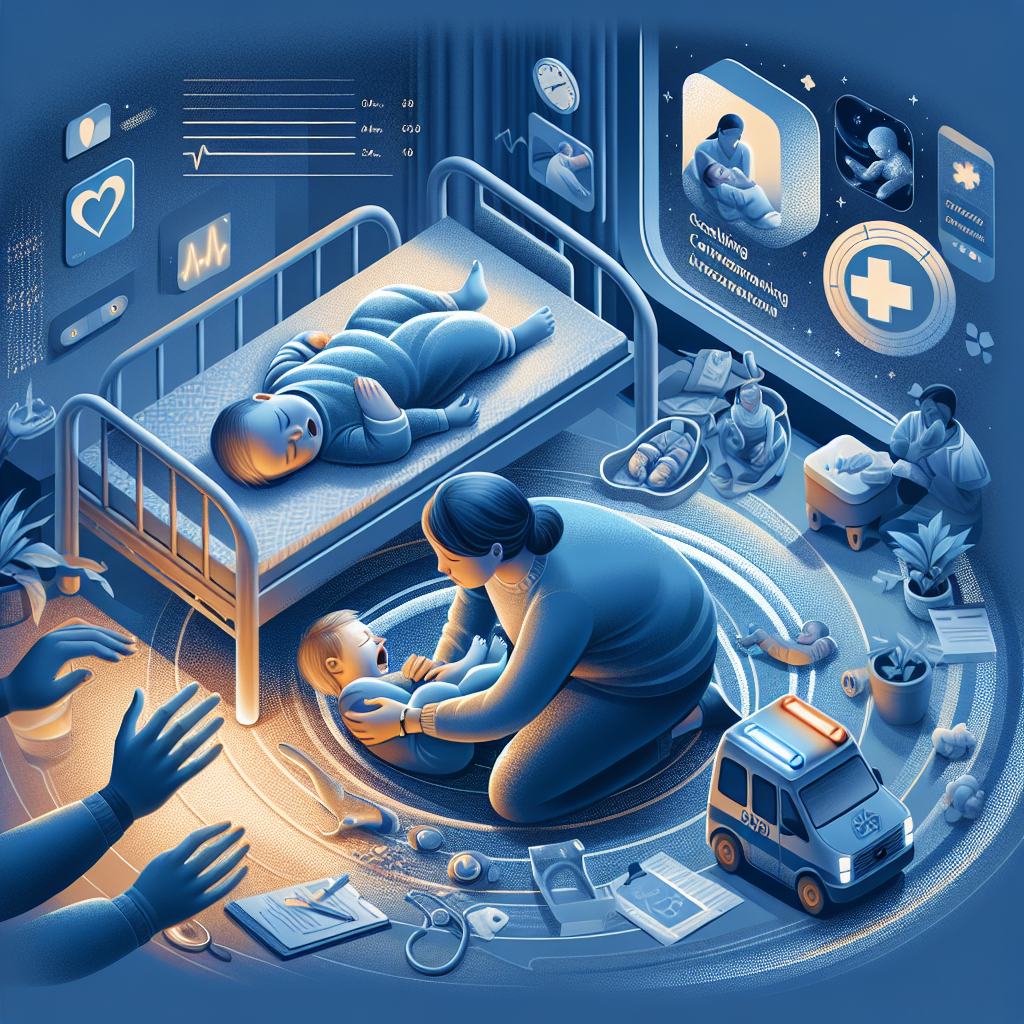Baby Fell Out of Bed: What to Do
As a parent, protecting your child is always a priority. However, even the most attentive parents can have to deal with unexpected accidents, such as the baby falling out of bed. Learn how to handle the situation and what precautions to take to prevent such incidents in the future.
Assessment of the Situation after the Fall
The first and most important step is to assess the child's condition immediately after the fall. Check to see if the baby is conscious, crying or showing signs of pain, and inspect closely for any visible signs of injury, such as swelling or bruising. If the child is unconscious, has serious injuries or is not breathing normally, immediately call 112 for emergency medical assistance.
Steps to Follow After Baby Drops
If the baby is conscious and has no visible serious injuries, follow these steps to comfort and calm him:
- Take the baby in your arms and try to calm him by rocking and singing.
- Carefully examine the child's entire body, including the head, to make sure there are no signs of serious injury.
- Observe the child's behavior; it is vital to monitor for any changes in awareness or behavior over the next few hours.
- If you notice excessive drowsiness, vomiting, difficulty breathing, seizures or any other worrying symptoms, see a doctor immediately.
Fall Prevention
Prevention is the key to avoiding accidental baby falls. Here are some tips to ensure a safe environment for your little one:
- Never leave baby unattended on a bed or other raised surface.
- Use a bed rail or a cot with raised edges to prevent your baby from falling.
- Make sure your baby's sleeping area is free of small objects that can be swallowed or cause suffocation.
- Learn to always put your baby to sleep on his back on a flat, firm surface.
What to Do After Baby Falls
Even if there are no immediate signs of injury, it is important to act responsibly and cautiously. Watch your baby for any changes in behavior or health, and don't hesitate to call your pediatrician for further advice. Observation after a fall is essential to rule out any internal injuries that may become more apparent over time.
Doctor consultation
In the event of a fall, it is always a good idea to consult a doctor. Here's when you should definitely contact a specialist:
- If the baby has visible injuries such as bumps or cuts.
- If the baby shows signs of continued discomfort or pain.
- If the baby shows abnormal behavioral changes or symptoms such as vomiting.
Motor Development and Accident Prevention
Invest the time to understand your child's motor development and how this progress can affect their safety. As babies grow, they develop motor skills that can increase the risk of falls due to unexpected movements.
- Be aware of development stages and adapt the environment accordingly.
- It provides a safe play surface on the floor to encourage the child to explore without the risk of falling.
Language Development and Communication with the Child
It is vital to communicate with your child in a calm and reassuring manner after an incident such as a fall.
- Talk to the child about what happened and explain that it is safe.
- It reinforces awareness and learning new words to help children express their own feelings and sensations if they hurt themselves.
Maintaining Confidence in Your Parenting Role
Even the most careful parents can face accidents. The important thing is not to let guilt affect your ability to react appropriately in such situations.
- Learn from each incident and use the experience to improve safety measures.
- Talk to other parents or professionals for advice and similar stories to make sure you're not alone in these experiences.
Conclusion
Being a parent comes with many challenges, and accidents are sometimes inevitable. However, the more informed and prepared you are, the better you will be able to handle the situation and prevent future incidents. Remember that it is crucial to remain calm and act with caution after the baby has fallen out of bed. Monitor him closely for any worrisome symptoms, and if in doubt, don't hesitate to ask your doctor for help. Stay informed and create a safe environment around your little one for a healthy and harmonious growth.
Do you want more tips for your child's safety or other information related to their growth and development? Follow our newsletter for the latest articles and resources!














































































































































